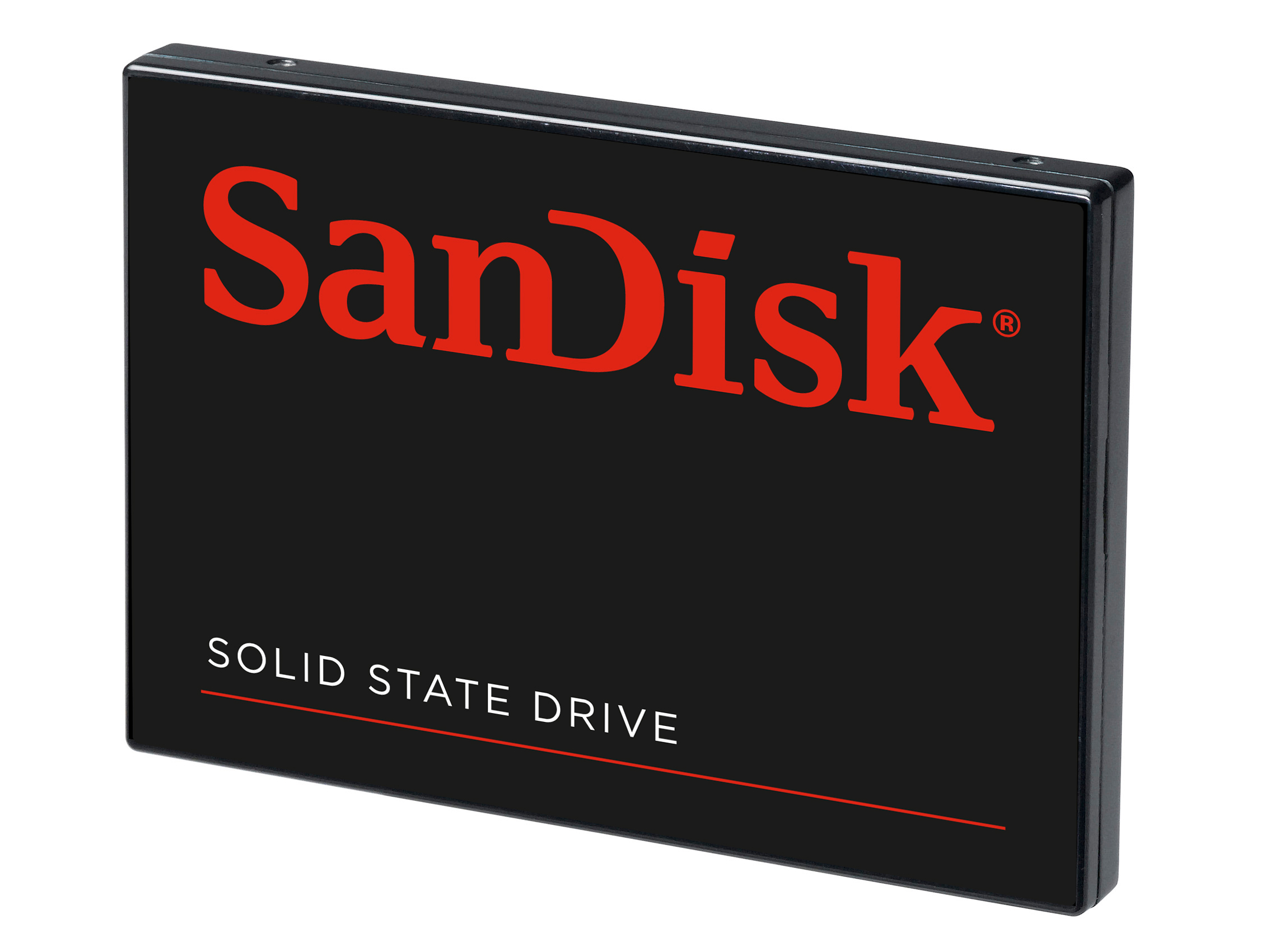SanDisk Buying SSD Developer Pliant Tech
Sandisk is buying enterprise SSD developer Pliant Technology for $327 million.
Typically when SanDisk comes to mind, it usually means a memory card or USB storage. Most consumers aren’t aware than SanDisk offers a few solid state drives, one with 60 GB and the other with 120 GB. The business sector has an even wider variety, adding the P4 line featuring various ways to interface including SATA, micro SATA, mSATA, LIF and BGA, and the iSSD line of integrated drives that are used in tablets, smartbooks, ultra-thin PCs and more.
But SanDisk's position in the enterprise market may get a turbo-charged boost, as the company has announced an agreement with enterprise SSD developer Pliant Technology. According to the agreement, SanDisk will acquire the company by forking over approximately $327 million in cash and provide certain "equity-based incentives." The deal is expected to close by the end of SanDisk's second fiscal quarter.
SanDisk is obviously after Pliant's technology. The latter company sells ultra-high performance enterprise solid state drives based on the SAS protocol and MLC NAND Flash memory. It also has plans to release PCIe-based solutions for high-performance compute servers. The lower cost of MLC is a key enabler for the broad adoption of SSDs in the enterprise market, the company said in a statement.
"Flash memory is making significant inroads into the enterprise by dramatically increasing application performance and reducing power consumption," said Sanjay Mehrotra, SanDisk president and chief executive officer. "We believe that the combination of Pliant's innovative technology and enterprise-level system expertise with SanDisk's high-quality, large-scale MLC memory production is a winning value proposition for customers."
"Our advanced flash technology roadmap and flash management capability will complement Pliant's strengths and allow us to lead the way in reliability and performance in the Enterprise SSD market," Mahrotra added.
Get Tom's Hardware's best news and in-depth reviews, straight to your inbox.

Kevin Parrish has over a decade of experience as a writer, editor, and product tester. His work focused on computer hardware, networking equipment, smartphones, tablets, gaming consoles, and other internet-connected devices. His work has appeared in Tom's Hardware, Tom's Guide, Maximum PC, Digital Trends, Android Authority, How-To Geek, Lifewire, and others.
-
eddieroolz So the consolidation of SSD makers begin, much like how it happened with HDD makers?Reply
Not that its a bad thing, if the consolidated companies promise to devote more to research and innovating on multiple fronts. -
macewrox Hopefully Microsoft configures Windows 8 to have more adaptability to SSD's, I have to do a checkdisk on mine every five boots. Or if they make a SSD version of it that works differently - since HDDs are all about queues.Reply -
figgus eddieroolzSo the consolidation of SSD makers begin, much like how it happened with HDD makers?Not that its a bad thing, if the consolidated companies promise to devote more to research and innovating on multiple fronts.Reply
In this case, you get two minor players combining to possibly form a real alternative to the bigger players. Not entirely a bad thing imo, this time the consolidation might add another realistic choice and drive further innovation in the market. -
virtualban *checking beard growth while waiting for prices to come down enough for SSD upgrades to make more sense than an upgrade in graphics or CPU for gaming experience*Reply -
fir_ser I hope they expand to the consumer market and offer some SSD there, and that’s to heat up the competition and lower the prices.Reply -
virtualban virtualban*checking beard growth while waiting for prices to come down enough for SSD upgrades to make more sense than an upgrade in graphics or CPU for gaming experience*Casually coming back years later, still SSD make less sense than upgrading other components. My beard is growing quite nicely.Reply -
virtualban p.s. 3x 1 TB raid 0 with 32 MB cache on each HDD, quite nice in performance, capacity, and price. :PReply
